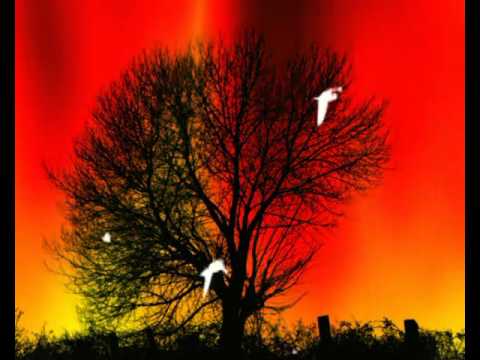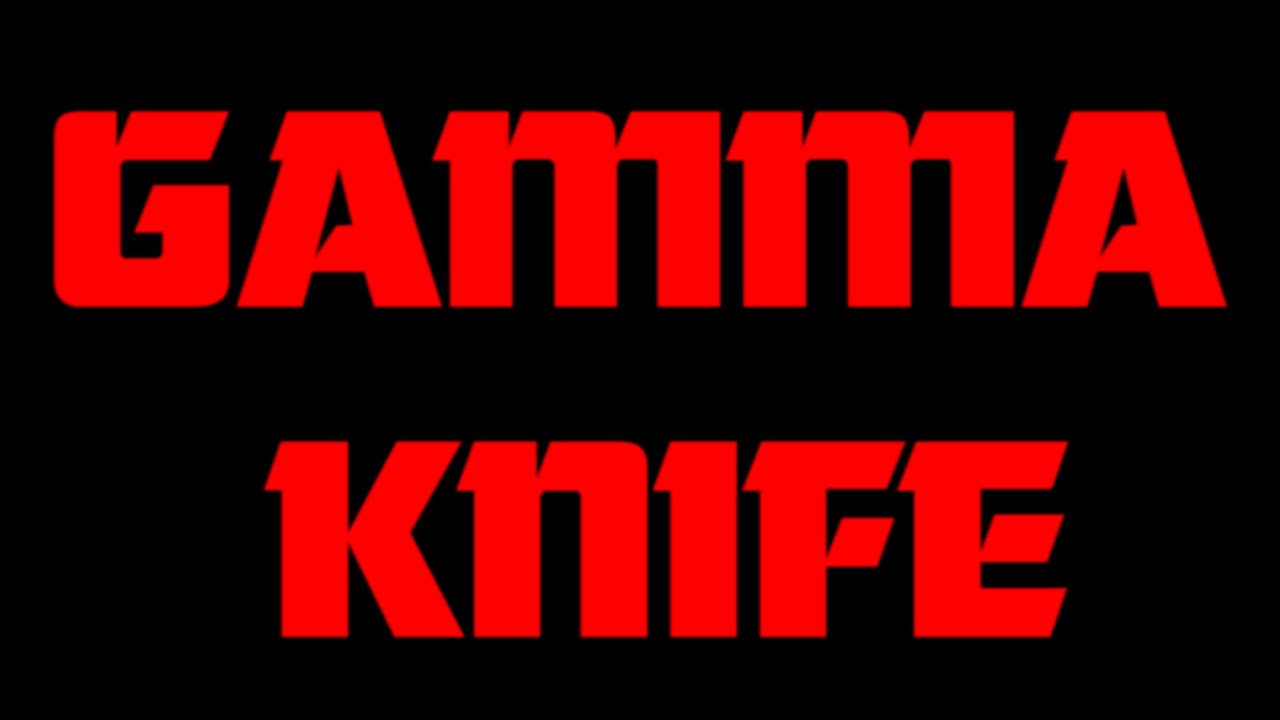As much as it warms my ever-diminishing cockles, the word "Hawkwind" simultaneously serves as a crushing reminder of the apparently limitless nature of my own limitations. By his early 30s, Hawkwind honcho Dave Brock had helmed several albums of genre-defining space rock, setting the blueprint for virtually all of the sci-fi-smitten prog-punk sounds that occupy this column, and a whole lot more besides. I, meanwhile, have yet to create any album, genre-defining or otherwise, and to be perfectly honest have never truly managed to position my tiny Trump-sized digits in the appropriate manner to produce a serviceable F chord. Added to that are the inadequacies I suffer at my own rickety "profession". Namely, I’ve probably used Hawkwind as a habitual point of comparison several times in every psych column I’ve written thus far, just like when I review moody synth-based music I’m always citing John frigging Carpenter or when I’m writing about mathrock and my fingers just automatically start typing the word "angular" or when I consistently commit every single one of veteran music writer Michael Azerrad’s #RockCriticLaws on an all-too regular basis.
Hawkwind exacerbate my imposter syndrome even further because, along with having never licked the back of a Colorado Desert toad under the rays of the Sonoran sun, I’ve barely listened to a note of any Hawkwind album released since around the late-90s, let alone the outfit’s countless splinter groups such as Space Ritual, Hawklords or Silvergalacticwindwarriors (probably). I’m sure I’m not the only guilty one but that’s no excuse. How dare you put yourself on a pedestal as this distinguished psych-rock authority figure when you can’t even name the twelfth track of 1997’s Distant Horizons, you poorly-postured pretender?
Well I’ve listened to the new one, all right?!
Hawkwind – The Machine Stops
(Cherry Red)
The concept of Hawkwind’s twenty-somethingth studio album is based on The Machine Stops, a 1909 novella by EM Forster, which I haven’t read. The album’s spoken-word intro ends with an ominous chant of "all hail the machine" and then we’re off on a 60-minute, 14-track odyssey through time and space complete with lyrics about "hurtling along at breakneck speed" and "a pulsing sensation / no ventilation". Rumbling bass lines and heavy astro-blues riffs are garnished with gurgling alien synthesisers and lead guitar parts made of ectoplasmic spaghetti. Sure, you might wish that ‘King Of The World’, which echoes 1974’s marvellous ‘The Psychedelic Warlords’, wasn’t so frustratingly brief and there’s the odd moment of clumsiness such as when the band’s playing peters out halfway through ‘In My Room’ to make way for the cinematic sample of a thunderstorm. But for the most part The Machine Stops is a celestial hoot. Fast-paced, catchy pop moments (‘Synchronized Blue’ and ‘A Solitary Man’) nestle seamlessly alongside more experimental, proggy numbers. ‘Hexagone’ dabbles in smooth, Air-like electronica. ‘Living On Earth’ has a Neu-ish krautrock sparkle, complete with a somewhat unexpected bluegrass fiddle section. And the intensely daft ‘The Harmonic Hall’ melds middle-eastern vibes with the kind of Native American chanting you’d get in an old Warner Brothers cartoon, hinting that Hawkwind might aspire to give world music-dabbling psych-Swedes Goat a run for their Krona.
Brock is the only remaining original member of Hawkwind. When ex-Hawkwind bassist Lemmy died at the end of December, the thought of Motörhead continuing in his absence was unimaginable. In contrast, it’s to Brock’s credit that you can envisage a Hawkwind without him, carrying on his honour like Sun Ra’s Arkestra or The Magic Band, fishing in younger members to replace retiring and ailing musicians ad infinitum so that future generations of Hawkwind will continue jamming away on the next few hospitable planets to which humankind emigrates once the Earth’s resources have been exhausted and long after you and I and everyone we’ve ever met have turned to dust, carrying our thoughts, dreams, memories and solipsistic anxieties with us into the eternal expanse of nothingness.
Deep Hum – Desert Moon Ouroboros
(self-released via Bandcamp)
Contrary to popular beliefs, not all psychedelia is fuelled by acid, mushrooms or William Reich’s Orgone Accumulator. Deep Hum are an unsigned psych duo based in Bridgend, Wales who claim to have recorded their heady debut dosed up on nothing more mind-altering than the contents of a few humble teabags. Alongside legal aromatic beverages, their influences include Emeralds, Boredoms’ late-90s work, early Tangerine Dream, Fripp & Eno, Chrononautz, "bad science fiction", "good science fiction" and "the moon". Gareth Davies handles sitar duties while Lloyd Markham fiddles around with cheap, mass-produced, pre-owned synthesisers, effects-boxes and "sometimes a bit of guitar". Deep Hum’s earthily murky jams have a markedly homespun feel but, if anything, that only makes the meandering reverbed-thingamajig pieces all the more charming. It’s also nice to hear Deep Hum’s electronic bleepy bits rising out of the lo-fi space mist like malfunctioning 90s arcade machines trying to contact us from the increasingly distant past. Opening track ‘A Desert On The Moon’ is the record’s finest achievement; a 13-minute sitar meditation adorned with all manner of shimmering audio blobbery. It’s a bit like a lyric-less deconstruction of ‘Tomorrow Never Knows’ that’s trying to turn itself into ‘Setting Sun’ by The Chemical Brothers but can’t because somebody went and spilt their cuppa on the gaffer-bandaged keyboard. ‘Lava Dreams’ and ‘Slow Melt’ are marginally calmer but also more abstract. The former has a hip psychedelic jazz influence, featuring something that sounds like it could be a Sun Ra-ian brass instrument but is actually, I’ve been informed, "a second-hand kaosillator set to a trumpet preset and run through a monotron delay", in case you want to try that out at home.
Zones – After Image
(Pleasence)
Like Deep Hum, Zones began as a bedroom project, established in 2012 in Toronto by one Derek McKeon. The ‘About’ section on Zones’ Facebook page describes the project as a solo endeavour although 2014’s debut release featured vocal contributions from Kat Murie and After Image‘s Bandcamp page credits Kathleen Speckert who I believe is the same person as Murie and also a member of Zones’ live incarnation. Confused? Try giving his/their music a spin. It’s the kind of disorientating material that, were you to play it on your portable listening device through a decent set of headphones while innocently popping out for some milk, you’d end up completely lost but unruffled, spinning around in a strange field with trees waving at you like strangers from a passing boat and a cow as purple as the Milka chocolate logo staring at you with her long-lashed hypercoloured eyes. In other words, it’s a thick perception-warping aural marmalade that absorbs its listener in a similar way to the output of the more exotic practitioners of the hypnagogic pop scene and the type of stuff LA’s Not Not Fun label began pipetting onto the tongue of the world in the mid-00s. For fans of Sun Araw, High Wolf, early Ducktails, Pocahaunted and Swiss milk chocolate packaging.
Arbor Labor Union – I Hear You
(Sub Pop)
"This is the three Rs," declared Mark E. Smith, defining The Fall’s agenda in the lyrics to one of his pioneering post-punk project’s earliest recorded tracks: "Repetition, repetition, repetition." Yet according to the title of a recent unofficial Fall documentary, It’s Not Repetition, It’s Discipline. So where does that discipline leave us hacks who are obliged to describe any band who sound a teeny bit reminiscent of The Fall as "slackers"? Especially the American ones. Pavement = slackers. Parquet Courts = slackers. Arbor Labor Union = slackers. What does that even mean, "slackers"? Pavement churned out material, toured often enough and appreciated sport(s), even taking to supporting Hull City FC, hardly the idle football follower’s team of choice. Parquet Courts, despite having made the inexcusable decision to support Manchester United, are four hardworking young men who’ve just released their fifth studio album since 2011. If Atlanta, Georgia’s Arbor Labor Union were to follow an English football club it would undoubtedly have to be… well I’m not sure. I know less about sport than I do about contemporary psych-rock (stay tuned for my forthcoming Quietus rugger column). Regimented, slothful or otherwise, Arbor Labor Union have the habit of eking out a smoky, barbequed riff and sticking to it with minimal variation for four-to-eight minutes while frontman Bo Orr yelps Bukowskian poetry as if his blackened lungs are about to run out of breath for good. There’s a pleasing half-time intermission that sounds like a Goo-era Sonic Youth instrumental and then it’s back to the alternative indie-rock shanties with earthy beats that are virtually irresistible to air-drum along to. "I am destroyed by the joyful noise," barks Orr, "And when the volume peaks, then I rejoice". Amen to that. Back of the net.
Bardo Pond – Acid Guru Pond
(Fire)
Inevitably co-opted by the majors, Record Store Day quickly became a cynical tool to flog overpriced double A-sides by Florence, Frank Turner and Foals to those among us with large disposable incomes and little discernible taste. While the number of genuinely interesting RSD releases grow fewer and fewer year upon year, there remains at least one band that makes it worth your while queuing up at 6:30am on a Saturday morning surrounded by unscrupulous eBay Del Boys and NUS cardholders bragging about how many "vinyls" they own. That band is Bardo Pond. Having completed their Record Store Day Trilogy – three 12-inch EPs that showcased side-long, radically reinterpreted cover versions – this year they’ve blessed us with a collaboration involving Acid Mothers Temple and Guru Guru. As far as psychedelic trinities go, they don’t come much holier than that. It seems The Pond have been sitting on this spectacular recording since 2007 and now it’s finally seen the light of day in a blooming gorgeous double-LP format which has two split-coloured records, one blue/green and the other red/orange, that hypnotically rotate atop your turntable while Bardo’s foggily distorted, flute-aided, jumbo-jams lull you into the comforting arms of your own personal "happy place". I cannot recommend it highly enough. Nor can I recommend an honourable merchant to buy it from but hopefully you’ll find a copy somewhere for less than an arm and a leg. Good luck to you, comrade.
Menimals – Menimals
(Riot Season)
Riot Season may be best known for its roster of hairy English noise-rock bastards who shout about prostitutes and scurvy but this latest release is a more avant-gardy breeze of Italian occultishness. For years, independent record shop staff have been scratching their perplexed noggins to the following question: "What have you got that is vaguely similar to the nightmarish vibe of doom metal only, you know, not as forcefully in-your-face and, instead of that, generally quite quiet and not really particularly heavy but still very scary and awesome?" Now they finally have an answer and it comes in the form of Menimals by Menimals. It consists of five tracks of near-Bohren-paced croaking bass, wiry Sun City Girlish guitar licks, low-mix Acid Mothers swirls and queerly whispered vocals. The words on ‘Dodecahedron, The Window Sphere’, which come courtesy of the mysterious Doctor Forge, are so soft you could easily mistake them for the voice in your head that mutters to you about The Devil when you’re innocently trying to purchase some washing powder. Menimals’ compositions often feel like they’re going to explode into crushingly distorted heavy sludge riffs but such a climax never comes; they just build and build until the suspense becomes almost unbearable. It’s like watching a horror film where you never catch a proper glimpse of the malevolent baddie who might, the subtext hints, be a figment of the protagonist’s imagination. The record is quiet but not ambient, more necromantic than psychedelic, very distinctive and damn hard to describe without pulling a hood down over your face and sacrificing a lamb to the LP deities.
The Lavender Flu – Heavy Air
(Holy Mountain)
The Lavender Flu is the latest project from Chris Gunn who used to play in Portland garage rockers The Hunches and then cult San Fran noisemakers The Hospitals. A flabbergasting 30 tracks in length, Heavy Air goes on forever but it’s a largely pleasant forever with most of its tunes easing to a halt before outstaying their welcome. Gunn’s songs have been written conventionally, probably acoustically, and then, to a greater or lesser extent, fucked with. In the lesser category is ‘My Time’, a sweet 60s-aping pop ditty complete with properly pretty melodies, "baby, baby" lyrics and whistling parts (although, to be fair, its roaring "solo" section is fairly messed up). More consistently peculiar items are the slurred, half-speed screech-rock ballad ‘Know Fear’ and the unhinged cardboard-muffled noodling of ‘Finger Like Wounds’. Naturally, there are some instrumental experiments, such as the brief and pointless ‘Wrong Womb Number 1’, though this clanger is remedied by the warped and wordless lullaby that is ‘Telepathic Axe’. Heavy Air is bockety, homebrewed singer-songwriter stuff, with stoned, misshapen vocals and plenty of dizzily spluttering guitar sounds. It might remind you in parts of David Baker-era Mercury Rev, Pete Nolan’s Spectre Folk, early Ween, Guided By Voices or a cottonmouthed Americana band trying to cover some forgotten Jesus & Mary Chain demo tape. Its sheer quantity of tracks is a lot to absorb in one sitting but at least you won’t feel short-changed.
King Gizzard & The Lizard Wizard – Nonagon Infinity
(Heavenly)
King Gizzard & The Lizard Wizard albums are like buses. If you miss one, another will be along in five minutes. Plus, at least one passenger will be wearing an incense-scented poncho. And you never know what kind of psychoactive substance the driver might be on. In the case of Nonagon Infinity, the answer might feasibly be amphetamines, or at least a superhuman intake of caffeinated energy liquids. Not only is this The Gizzard’s fourth album in 18 months but also, in contrast to its floaty, pastoral predecessor (2014’s Paper Mâché Dream Balloon), Nonagon Infinity crashes through the door of its depot, whizzing along at a relentless pace with each track flowing immediately into the next without any concern for the safety of passengers or pedestrians. Its final track even loops back to the intro of its first so, if you wanted, you could just sit there on its accelerated circuit route and go round and round forever like some mad person with an unlimited travel pass, a whole lot of time and a sturdy pair of g-force resistant jowls. There are worse ways to spend eternity. Bluesy harmonicas, olde-worlde keyboards, gangling guitars, echoed vocals and the beats of two separate drum kits fly across your ears in an ostensibly frenzied manner but, crucially, the tunes are there too. This isn’t just seven guys bashing at their instruments while utilising a multitude of effects pedals to disguise their musical and compositional ineptitude. They have rare nuance and acumen, those Gizzard fellas, and long may they blizzard.
Next time: A Bluffer’s Guide To Neo-Smollettian Post-DMT Überwave





